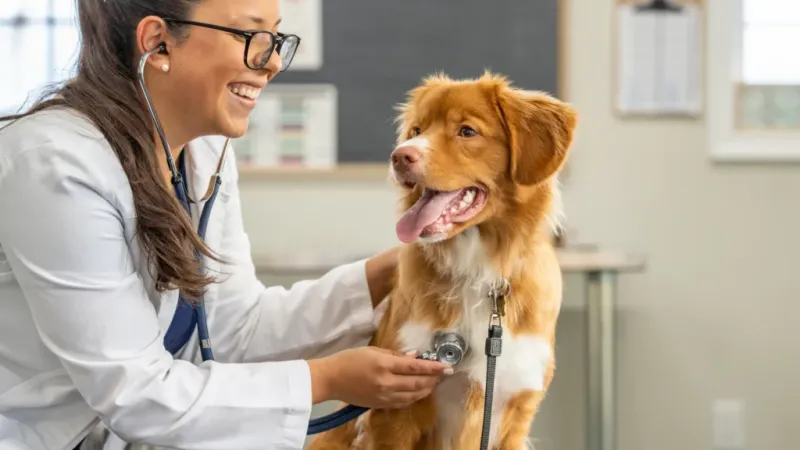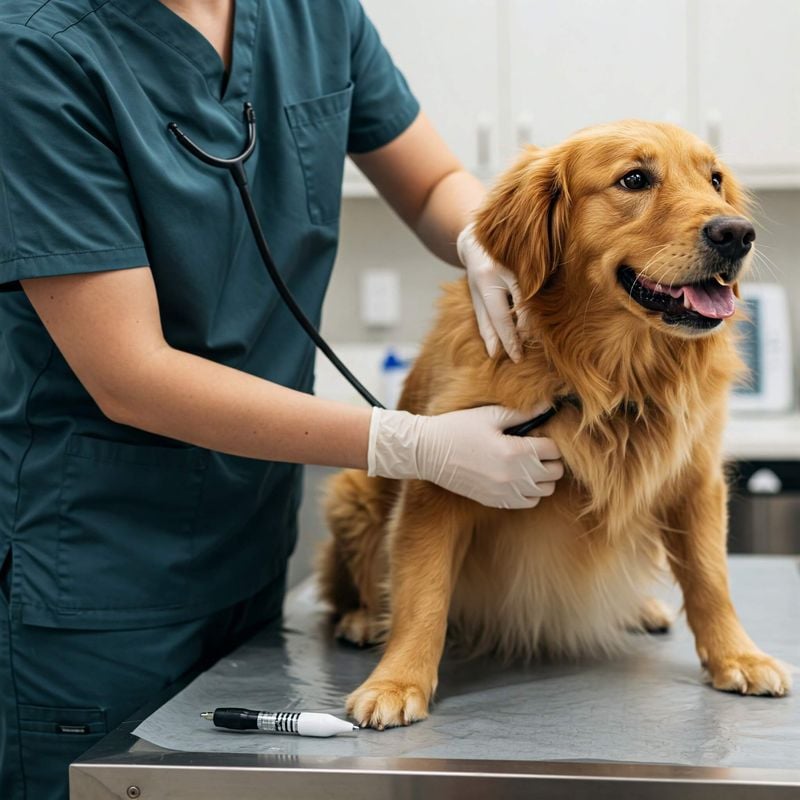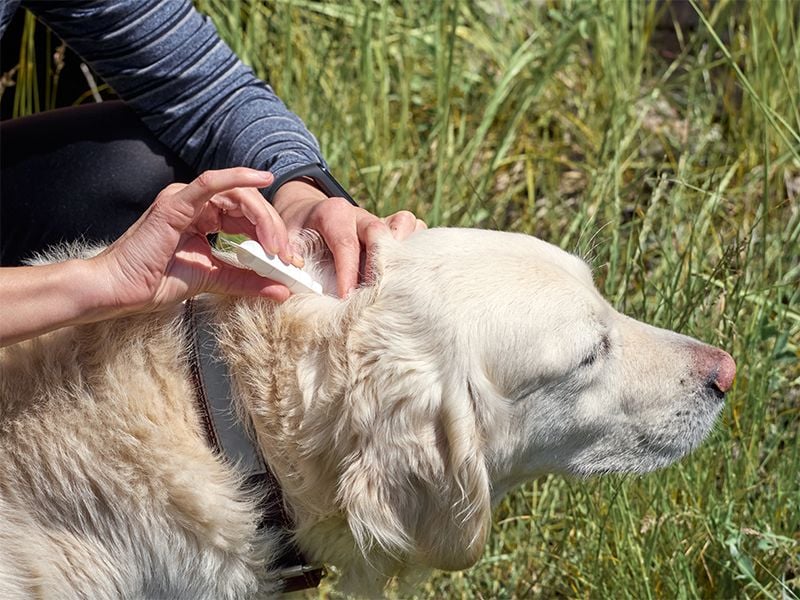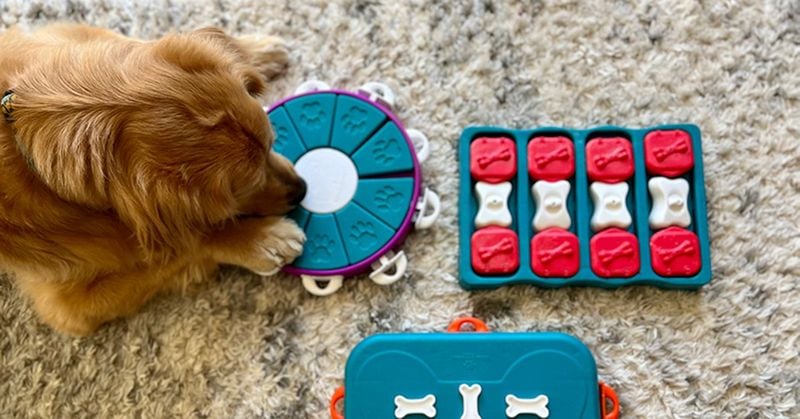The Truth About How Long Golden Retrievers Live (And How to Add Years)
Golden Retrievers bring sunshine into our homes with their wagging tails and loving nature, winning hearts with every goofy grin and gentle nudge. Loyal, eager to please, and endlessly affectionate, it’s no wonder they’re one of the most popular dog breeds in the world. But behind those soulful eyes and playful paws lies a sobering reality—Golden Retrievers often have shorter lifespans than many other breeds.
On average, a Golden lives between 10 to 12 years, and many owners are caught off guard when faced with serious health challenges far too soon. From hereditary conditions to lifestyle-related issues, a number of factors influence how long these beautiful dogs stay with us.
The good news? You can absolutely make a difference. With the right care, attention, and informed choices, it’s possible to not only extend your Golden’s life but also improve the quality of their golden years. From choosing the right food and exercise routines to early detection of common health issues, proactive care is key.
Whether you’re a seasoned Golden owner or thinking of bringing one into your family, understanding what affects their lifespan is one of the most loving things you can do. Let’s explore the health concerns, longevity tips, and everyday habits that can help your Golden Retriever live a longer, happier life by your side.
Average Lifespan: What to Expect
Most Golden Retrievers live between 10-12 years, though some may reach 13 or 14 with excellent care. This is slightly shorter than the average for similarly-sized dogs, which often surprises first-time owners.
Genetics play a significant role in determining how long your Golden will live. Dogs from reputable breeders with health-tested parents often enjoy better longevity than those from unknown backgrounds.
Female Goldens typically live about 6 months longer than males, though individual health factors ultimately matter more than gender when predicting lifespan.
Cancer: The Leading Health Threat
Cancer strikes Golden Retrievers at an alarming rate – studies show over 60% will develop some form during their lifetime. Hemangiosarcoma (affecting the blood vessels) and lymphoma are particularly common in the breed.
Regular veterinary check-ups can catch cancer early when treatment is most effective. Watch for unusual lumps, unexplained weight loss, lethargy, or changes in appetite as potential warning signs.
The Morris Animal Foundation’s Golden Retriever Lifetime Study is currently tracking thousands of Goldens to better understand cancer risk factors and potentially develop preventative measures for future generations.
Joint Problems That Limit Mobility
Hip and elbow dysplasia affects many Golden Retrievers, causing painful joint deterioration that can significantly reduce quality of life. These conditions develop when joints don’t form properly, leading to arthritis as your dog ages.
Maintaining healthy weight is crucial for joint health. Every extra pound puts additional stress on already vulnerable joints, accelerating damage and increasing pain.
Supplements containing glucosamine and chondroitin may help support joint function, while moderate exercise builds muscle that supports joints. Swimming provides excellent low-impact exercise that won’t stress painful hips and elbows.
Heart Health Concerns
Subvalvular Aortic Stenosis (SAS) is the most common heart condition in Golden Retrievers. This narrowing of the aorta forces the heart to work harder, potentially leading to heart failure if severe.
Listen for unusual coughing, difficulty breathing, or decreased stamina during walks. These could be early warning signs of developing heart problems that warrant immediate veterinary attention.
Annual heart check-ups become increasingly important as your Golden ages. Your vet can detect heart murmurs or irregular rhythms before they cause noticeable symptoms, allowing for earlier intervention and management.
Lifespan-Extending Tips
Golden Retrievers bring boundless joy to families with their friendly personalities and unwavering loyalty. Unfortunately, these beloved companions typically live between 10-12 years, shorter than many would hope. The good news is that with proper care and attention to specific health needs, you can potentially add quality years to your Golden’s life. These practical tips will help your furry friend stay healthy, happy, and by your side for as long as possible.
1. Partner with a Responsible Breeder
Your Golden’s health journey begins before they’re even born. Responsible breeders screen parent dogs for genetic conditions common in the breed, like hip dysplasia, heart problems, and certain cancers. These health clearances significantly reduce the risk of your puppy developing these issues later.
Ask to see documentation for both parents, including OFA hip and elbow evaluations, cardiac checks, and eye certifications. Reputable breeders also socialize puppies early and won’t let them go home before 8 weeks old.
Remember that a higher initial cost from a quality breeder often means fewer vet bills and heartaches down the road.
2. Strategic Spaying and Neutering
The timing of spaying or neutering your Golden Retriever matters more than you might think. Recent research suggests waiting until your dog reaches physical maturity (around 12-18 months) allows important hormones to complete their work in bone and joint development.
Female Goldens spayed before their first heat cycle have a dramatically reduced risk of mammary cancer. However, early spaying may increase the risk of certain orthopedic problems and other cancers.
Have an honest conversation with your veterinarian about the optimal timing based on your specific dog’s health profile and living situation.
3. Premium Nutrition Matters
Not all dog foods are created equal, and Goldens thrive on high-quality nutrition. Look for foods with real meat as the first ingredient, not meat by-products or fillers like corn and wheat. Many Golden Retrievers benefit from formulas containing glucosamine and chondroitin for joint health.
Consider feeding age-appropriate food—puppy, adult, or senior formulations—as nutritional needs change throughout life. Some owners find that adding fresh foods like blueberries, carrots, or sardines provides beneficial antioxidants and omega-3 fatty acids.
Always transition to new foods gradually, and watch for food sensitivities which can manifest as itchy skin or digestive issues.
4. Daily Exercise Regimen
Golden Retrievers were bred to work, and their bodies crave regular activity. Aim for at least 60 minutes of exercise daily, split between walks and more vigorous play like fetch or swimming—a Golden favorite that’s gentle on aging joints!
Vary your activities to keep your dog mentally engaged while building different muscle groups. Young Goldens need controlled exercise that doesn’t strain developing joints, while seniors benefit from shorter, gentler sessions.
Remember that a tired Golden is a happy Golden, and regular exercise helps prevent destructive behaviors while maintaining a healthy weight—crucial for longevity.
5. Weight Management Strategy
Extra pounds put dangerous strain on your Golden’s heart, joints, and organs. Studies show that keeping your dog at an ideal weight can add up to two years to their lifespan! You should be able to feel (but not see) your Golden’s ribs, and they should have a visible waist when viewed from above.
Measure food portions precisely rather than free-feeding. Treats should make up no more than 10% of daily calories—try using pieces of carrot or apple as lower-calorie alternatives.
If your Golden starts gaining weight, adjust portions before the problem compounds. Regular weigh-ins help catch trends early.
6. Consistent Veterinary Care
Goldens are masters at hiding illness until it’s advanced. Annual wellness exams catch problems before they become serious—including the cancers this breed is unfortunately prone to developing. After age seven, increase to twice-yearly checkups as your Golden enters senior status.
Request a complete blood panel annually to monitor organ function and detect early disease markers. Many owners create a baseline when their dog is healthy to make future comparisons more meaningful.
Between visits, perform monthly home exams—check ears, teeth, skin, and feel for any new lumps or bumps, which should always be evaluated by your vet promptly.
7. Dental Health Routine
Dental disease affects more than your Golden’s breath—bacteria from infected gums can enter the bloodstream and damage vital organs. Start brushing your puppy’s teeth early to establish the habit, using enzymatic toothpaste made specifically for dogs (never human toothpaste).
Aim for daily brushing, but even three times weekly makes a significant difference. Supplement with dental chews, water additives, or dental diets recommended by your veterinarian.
Most Goldens will eventually need professional dental cleanings under anesthesia. Don’t skip these important procedures out of fear—the benefits far outweigh the minimal risks of modern veterinary anesthesia.
8. Parasite Prevention Protocol
Heartworm disease can be fatal, while ticks transmit Lyme disease and other serious infections. Year-round prevention is now the standard of care, even in colder climates. Modern preventatives often protect against multiple parasites simultaneously.
Keep your Golden’s vaccines current based on their lifestyle and risk factors. Core vaccines like rabies are essential, while others like Lyme or Bordetella may depend on where you live and your dog’s activities.
Don’t forget about flea prevention—besides causing uncomfortable itching, fleas can transmit tapeworms and cause anemia in severe infestations. Ask your vet about the safest, most effective products for your specific situation.
9. Brain Games and Training
Golden Retrievers are intelligent workers who need mental challenges as much as physical exercise. A bored Golden can become destructive or develop anxiety, while mental stimulation keeps their brain sharp well into old age.
Rotate puzzle toys that dispense treats when manipulated correctly. Teaching new tricks throughout your dog’s life creates valuable mental exercise—old dogs absolutely can learn new tricks!
Consider advanced training like agility, scent work, or retrieving games that tap into your Golden’s natural abilities. Even five minutes of training daily provides meaningful engagement and strengthens your bond while keeping your dog’s mind active and healthy.
10. Environmental Safety Scan
Golden Retrievers explore the world mouth-first, making them vulnerable to accidental poisonings and intestinal blockages. Secure toxic substances like chocolate, xylitol (in sugar-free products), medications, and household cleaners behind childproof latches.
Keep small objects that could be swallowed out of reach—Goldens are notorious for eating socks, toys, and other non-food items that can require surgical removal. Check your yard for toxic plants like sago palms, lilies, and certain mushrooms.
In hot weather, never leave your Golden in a parked car, and provide shade and plenty of fresh water. During winter, protect paws from ice-melting chemicals with boots or paw wax.


















